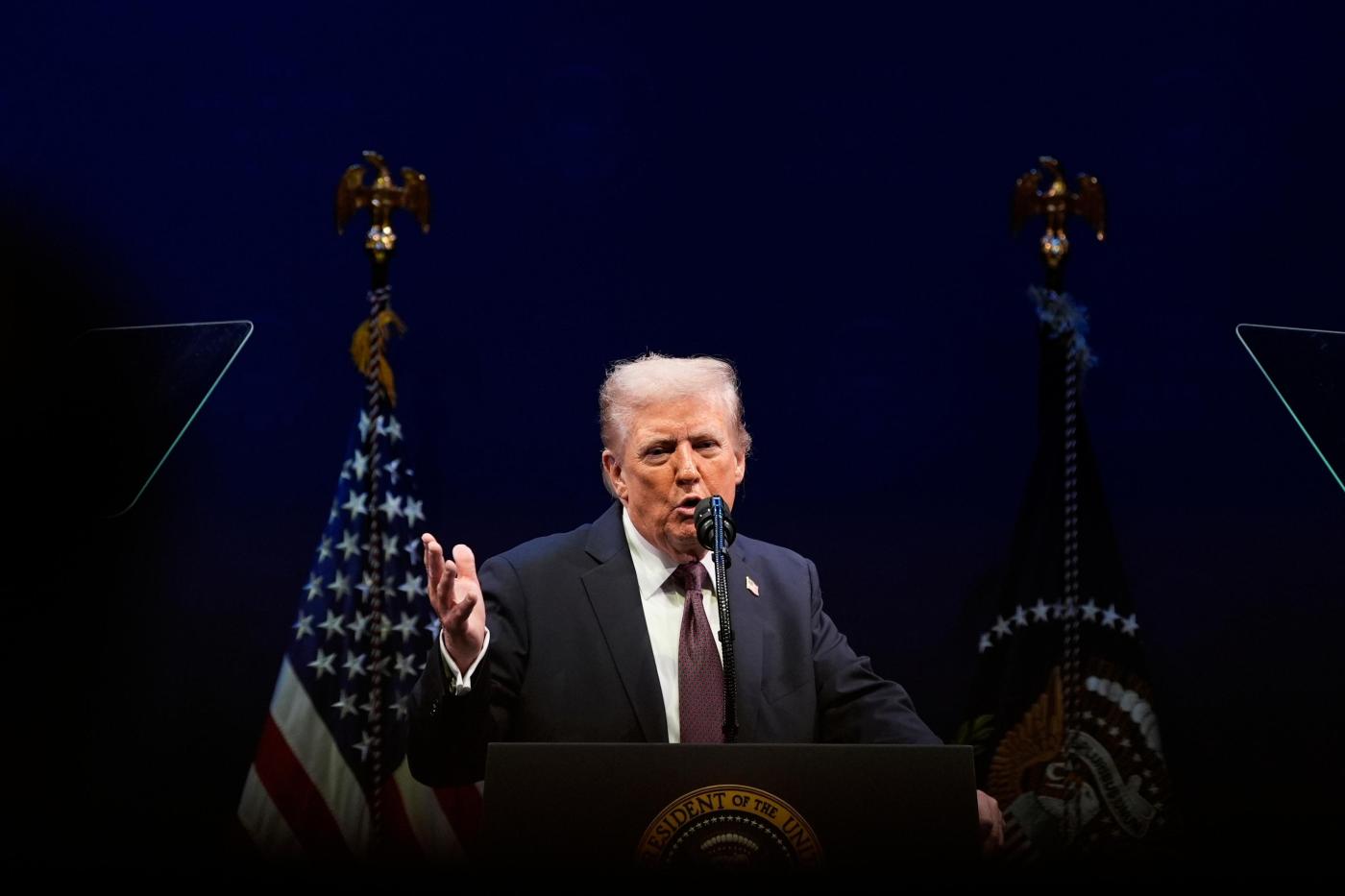By LINDSAY WHITEHURST, Associated Press
WASHINGTON — The Supreme Court on Monday cleared the way for federal agents to conduct sweeping immigration operations in Los Angeles, the latest victory for President Donald Trump’s administration at the high court.
Related Articles
‘Secret policy’ alleged in California lawsuit accusing ICE of interrogating unaccompanied migrant children
Why are Bay Area schools not taking L.A.’s lead in protecting students from ICE?
An ICE raid breaks a family — and prompts a wrenching decision
Bay Area community of Afghan immigrants feels betrayed and uncertain in the wake of Trump’s travel ban
South Sudan repatriates Mexican man deported from US in July
The justices lifted a restraining order from a judge who found that “roving patrols” were conducting indiscriminate arrests in LA. The order had barred agents from stopping people solely based on their race, language, job or location.
Trump’s Republican administration argued the order wrongly restricted agents carrying out its widespread crackdown on illegal immigration.
U.S. District Judge Maame E. Frimpong in Los Angeles had found a “mountain of evidence” that enforcement tactics were violating the Constitution. The plaintiffs included U.S. citizens swept up in immigration stops. An appeals court had left Frimpong’s ruling in place.
The Supreme Court’s 6-3 decision comes as Immigration and Customs Enforcement agents also step up enforcement in Washington amid Trump’s unprecedented federal takeover of the capital city’s law enforcement and deployment of the National Guard.
The lawsuit will now continue to unfold in California. It was filed by immigrant advocacy groups that accused Trump’s administration of systematically targeting brown-skinned people during his administration’s crackdown on illegal immigration in the Los Angeles area.
Department of Homeland Security attorneys have said immigration officers target people based on illegal presence in the U.S., not skin color, race or ethnicity. Even so, the Justice Department argued that the order wrongly restricted the factors that ICE agents can use when deciding who to stop.
The Los Angeles region has been a battleground for the Trump administration after its hard-line immigration strategy spurred protests and the deployment of the National Guard and the Marines. The number of immigration raids in the LA area appeared to slow shortly after Frimpong’s order came down in July, but recently they have become more frequent again, including an operation in which agents jumped out of the back of a rented box truck and made arrests at an LA Home Depot store.
The plaintiffs argued that her order only prevents federal agents from making stops without reasonable suspicion, something that aligns with the Constitution and Supreme Court precedent.
“Numerous U.S. citizens and others who are lawfully present in this country have been subjected to significant intrusions on their liberty,” the plaintiffs’ attorneys wrote. “Many have been physically injured; at least two were taken to a holding facility.”
The Trump administration said the order is too restrictive, “threatening agents with sanctions if the court disbelieves that they relied on additional factors in making any particular stop.”
Solicitor General D. John Sauer also argued the order can’t stand under the high court’s recent decision restricting universal injunctions, though the plaintiffs disagreed.
The order from Frimpong, who was nominated by Democratic President Joe Biden, bars/barred authorities from using factors like apparent race or ethnicity, speaking Spanish or English with an accent, presence at a location such as a tow yard or car wash, or someone’s occupation as the only basis for reasonable suspicion for detention. Its covers/covered a combined population of nearly 20 million people, nearly half of whom identify as Hispanic/Latino.
Plaintiffs included three detained immigrants and two U.S. citizens. One of the citizens was Los Angeles resident Brian Gavidia, who was shown in a June 13 video being seized by federal agents as he yelled, “I was born here in the States. East LA, bro!”
Gavidia was released about 20 minutes later after showing agents his identification, as was another citizen stopped at a car wash, according to the lawsuit.
___
Associated Press writer Jaimie Ding in Los Angeles contributed to this report.
___
Follow the AP’s coverage of the U.S. Supreme Court at https://apnews.com/hub/us-supreme-court and immigration at https://apnews.com/hub/immigration.





